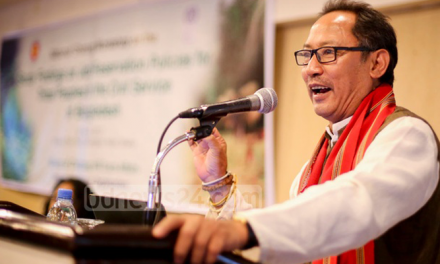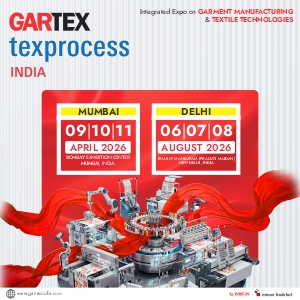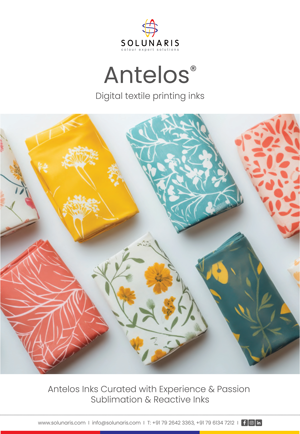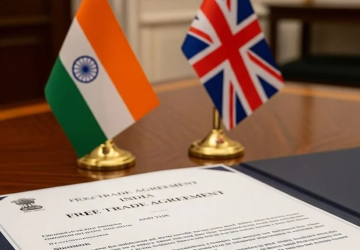Ritesh Khandelwal, Co-Founder, ZYOD
 “The forthcoming budget presents a pivotal opportunity for apparel startups to reshape the industry’s future through innovation and sustainability. We anticipate policies that encourage investments in AI, automation, and sustainable practices, which can drive significant growth and transformation. Simplifying compliance and offering tax incentives will be crucial in fostering a more conducive business environment.
“The forthcoming budget presents a pivotal opportunity for apparel startups to reshape the industry’s future through innovation and sustainability. We anticipate policies that encourage investments in AI, automation, and sustainable practices, which can drive significant growth and transformation. Simplifying compliance and offering tax incentives will be crucial in fostering a more conducive business environment.
Additionally, export incentives will be essential for taking India’s products to the global market, thereby boosting export revenues and strengthening the economy. Given that the textile industry employs over 45 million people and contributes 5% to the GDP, this budget must address the unique challenges and opportunities faced by our sector. Lastly, we also expect the budget to address various logistics and sustainability challenges that the apparel industry is facing while boosting export ambitions,”.
“We believe the apparel industry is optimistic about the upcoming budget announcement. The sector is positive and expects initiatives that will drive technological innovation and infrastructure development. The industry contributes approximately 5% to the GDP and employs over 45 million people, underscoring its vital role in the nation’s economy. Key areas of focus this year should include support for automation incentives, which have proven to be a game-changer for productivity and efficiency.
Additionally, policies that boost manufacturing, investments in technology, and export incentives are essential for maintaining global competitiveness, especially when brands increasingly look towards India as a prime manufacturing hub. In this context, more favorable Free Trade Agreements (FTAs) are crucial to facilitate smoother trade and attract foreign investment. We are hopeful for a budget that not only boosts local production but also enhances our competitiveness on the global stage, ultimately leading to a stronger and more sustainable apparel industry.”
Shyam Prasad, CEO, Brand Studio Lifestyle
 “As we approach the upcoming budget announcement, we hope that the government will focus on boosting disposable income, especially for the salaried class, through tax benefits and dedicated rural community initiatives. The fashion segment being dynamic and highly responsive to changes in consumer behaviour, economic policies, and market trends. We hope the government will prioritise initiatives and investments to stimulate consumer spending, and also align with the ongoing infrastructure development initiatives. Moreover, the rise in rural spending provides a great opportunity to expand the consumer base in e-commerce, helping it grow and reach more people. Online shopping is becoming more popular among rural consumers, giving them access to a wider range of products and better deals. These strategic measures are primed to fuel not just economic growth but also pave the way for inclusive development and vibrant market opportunities across various sectors.”
“As we approach the upcoming budget announcement, we hope that the government will focus on boosting disposable income, especially for the salaried class, through tax benefits and dedicated rural community initiatives. The fashion segment being dynamic and highly responsive to changes in consumer behaviour, economic policies, and market trends. We hope the government will prioritise initiatives and investments to stimulate consumer spending, and also align with the ongoing infrastructure development initiatives. Moreover, the rise in rural spending provides a great opportunity to expand the consumer base in e-commerce, helping it grow and reach more people. Online shopping is becoming more popular among rural consumers, giving them access to a wider range of products and better deals. These strategic measures are primed to fuel not just economic growth but also pave the way for inclusive development and vibrant market opportunities across various sectors.”
Ankit Bhuwalka, Co-Founder & Business Head, Scarlet Sage
 “As entrepreneurs, we eagerly await Budget 2024, hoping it will further boost India’s industrial growth. Through this fiscal budget, we hope the government will significantly aid the Indian textile and apparel industry by facilitating increased exports. Since 2018, the export volume of textiles and apparel has grown by only about 1%. In 2021, though the government had approved a Rs 10,683 crore PLI scheme for textiles to promote man-made fibre apparel, fabrics, and technical textiles, the implementation has been slow. Extending and better implementing this PLI scheme to the garments sector, which the government is considering, would be beneficial. The recent discussions about expanding the scheme to boost domestic manufacturing and exports are promising.
“As entrepreneurs, we eagerly await Budget 2024, hoping it will further boost India’s industrial growth. Through this fiscal budget, we hope the government will significantly aid the Indian textile and apparel industry by facilitating increased exports. Since 2018, the export volume of textiles and apparel has grown by only about 1%. In 2021, though the government had approved a Rs 10,683 crore PLI scheme for textiles to promote man-made fibre apparel, fabrics, and technical textiles, the implementation has been slow. Extending and better implementing this PLI scheme to the garments sector, which the government is considering, would be beneficial. The recent discussions about expanding the scheme to boost domestic manufacturing and exports are promising.
Apparel exporters seek various incentives in Budget 2024 to enhance manufacturing. The Apparel Export Promotion Council (AEPC) has requested tax incentives, such as uniform GST rates and enhanced interest subsidies, to boost domestic manufacturing and exports. Additionally, AEPC has called for tax concessions for apparel manufacturers.
While the government emphasizes ease of doing business, there is great potential for further improvement in compliance procedures for global e-commerce brands. Simplifying processes such as regularising inward remittances against exports, with AD banks and DGFT, would reduce the compliance burden on the MSME sector. We are optimistic that the upcoming budget will address these challenges, fostering a more efficient and supportive environment for e-commerce growth. We look forward to a budget that drives growth and supports the textile and apparel industry’s global competitiveness”.


















